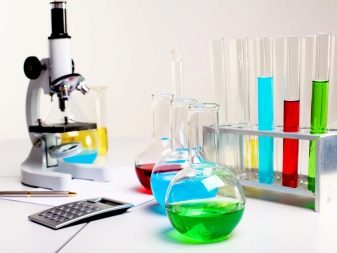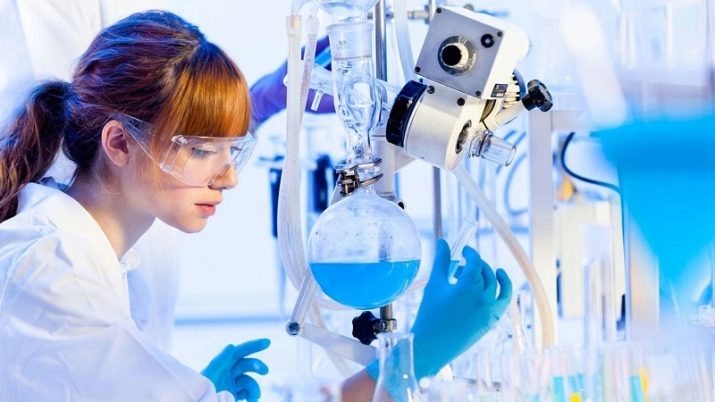Features of the profession of chemical engineer

A specialist with a higher professional education, who is called a chemical engineer, is related to work in the chemical industry - he is well aware of the structure and properties of various substances, knows the peculiarities of their interaction and processing, and has the skills to preserve and utilize them.
A professional with an education in organic or non-organic chemistry knows and knows how to work with various technologies, his work is related to the modification of chemicals and the development of modern methods of using them to achieve specific goals.
Characteristic
The profession and professional standard of a chemical engineer implies research work, planning and implementation of certain chemical processes... In production, a chemical engineer performs the function of a technologist. He develops all the technical aspects of the production process and controls them at all stages of implementation. The result is a high-quality product with the specified characteristics and parameters. This can be the production of rubber products, the production of glass or porcelain, fertilizers for plants, products from plastic polymers, and so on.
The modern chemical industry, thanks to the scientific research of professional chemists, is steadily developing. That is why preservatives and flavor enhancers have already been created in the food industry, fire extinguishing agents in energized networks, modern disinfectants and many other necessary means to provide a person with a comfortable life. In the Unified Qualification Reference (ECTS), the description of the profession of a chemical engineer implies the presence of two categories - 1 and 2. The difference between these categories is the availability of professional experience and specialist competence.
Job opportunities for such professionals are most often found in cities where the chemical industry is developed or where there are manufacturing enterprises of a similar focus.

Job description
Working as a chemical engineer involves a fairly wide and varied range of responsibilities, but they depend on each specific production or research process. Therefore, the duties of a specialist may include various functions; their set for an employee of a scientific laboratory will differ in comparison with the duties of a person working in the production sphere.
The main responsibilities of a chemical engineer include:
- development of all stages of technological stages of a chemical process;
- participation in the development of new products in terms of calculating the required materials, their quantity, as well as the selection of the most optimal production methods;
- adjustment of working equipment for performing production processes;
- optimization of technological production processes to increase their efficiency;
- control over the quality of production of a product at all stages of production;
- performance of work on standardization and compliance of the product with GOST or TU (technical specifications).
The activity of a chemical engineer is associated not only with work in production or in a laboratory, this position involves attending scientific conferences and seminars, various exhibitions and presentations. A specialist of this level is especially highly appreciated if he constantly increases the level of his professional qualifications. Chemists are in great demand in specialized scientific institutes engaged in research work, as well as in factory laboratories at industrial enterprises.
Chemical engineers are indispensable in the food industry and pharmaceuticals, metallurgical enterprises, in the polymer, rubber and oil refining industries, as well as in other areas of the national economy.


Education
The specialty of a chemical engineer is taught in specialized higher educational institutions. Modern universities can offer the specialty "Chemical technology", "Chemistry", "Chemical technology of materials of modern energy", "Oil and gas business" and other similar areas. Training is carried out in-person, but remote form is also possible. You can enter a university after completing 11 classes, for this you will need to pass the following subjects on the exam: mathematics, Russian, chemistry, and some universities also require the delivery of physics. Education in the specialty of a chemical engineer can be obtained in higher educational institutions of Russia, specialized universities are in large numbers in different cities of the country.
- Russian Chemical-Technological Institute named after Mendeleeva DI - the educational institution is located in Moscow;
- St. Petersburg University of Chemical Technology;
- Yaroslavl State Technical University;
- South Ural State University;
- National Research Nizhny Novgorod State University named after Lobachevsky N.I .;
- Far Eastern Federal University;
- Kazan (Volga Region) State University;
- Russian State University of Oil and Gas Gubkina I. M .;
- Tyumen State University;
- St. Petersburg State University of Chemistry and Pharmacy;
- Samara National Research University named after academician S.P. Korolev
You can become a professional chemical engineer by starting your journey with training at a specialized college, enrolling there after the end of grade 9. Graduates of these secondary educational institutions receive the specialty of a chemist-technologist or a chemist-laboratory assistant, which gives them advantages when entering a university, and also allows them to start working in the chemical industry and, in parallel with work, receive a correspondence higher education.


Work
In the field of chemical technology, there is a large number of multidirectional sections in which a chemical engineer is engaged in his work duties or does scientific research. This can be the direction of biochemistry, hydrocarbon chemistry, agricultural chemistry, research programs, and so on. A chemist in these areas can realize himself as an ecologist or laboratory assistant, and he can also head any production or scientific division.
The activities of a chemical engineer are often associated with substances that can have a harmful effect on the human body or pose any other hazard. Therefore, the specialty is subject to legislative regulation of this professional activity. Employees of production facilities and laboratories are obliged to obey labor safety standards, and in some cases they have a duty not to disclose the results of research work, which are commercial and even state secrets.
The main areas of work for a chemical engineer are:
- study of chemical substances, their properties, application possibilities, performance of physical and chemical studies and analysis of their results;
- creation of new products based on a variety of chemical compounds;
- conducting examinations and drawing up expert opinions on their basis;
- creation of new pharmacological products and drugs, identification and research of substances with biological activity;
- implementation of chemical and technological control over production processes in the manufacture of intermediate raw materials and finished products;
- performance of nature conservation work to protect the ecology and the environment, control over the disposal or storage of chemicals and their waste.
In addition to the above activities, a chemical engineer can also carry out teaching activities, but for this he needs to undergo additional education, containing knowledge of pedagogy.

The salary
The demand for specialists with knowledge in the field of chemistry is quite high. This job pays well, and the graduate will always be able to find a job in his profile.... The high demand for competent chemists is also high because this science itself is complex and not everyone can master it. To do your job professionally, you need to have fundamental knowledge and be well versed in this issue.
An experienced specialist makes good money, on average in Russia, the level of highly paid professionals can range from 60 to 80,000 rubles. A university graduate, as a novice specialist, can start his work as an assistant, his initial earnings can be in the range of 25-30,000 rubles. How much a chemical engineer earns depends on his qualifications and work experience. A specialist in the chemical industry can receive various types of allowances for hazardous working conditions, and wages may also depend on the level of the enterprise and its internal policies.
Today the profession of a chemical engineer developing and constantly improving... The chemical industry receives support from the state; competent specialists are always in demand in it. You can become a truly experienced specialist by going through the path of becoming from scratch, starting with the work of a laboratory assistant or apparatus operator, and then becoming an engineer or head of a department.
A further stage of development can be the defense of a dissertation and obtaining a scientific degree.









